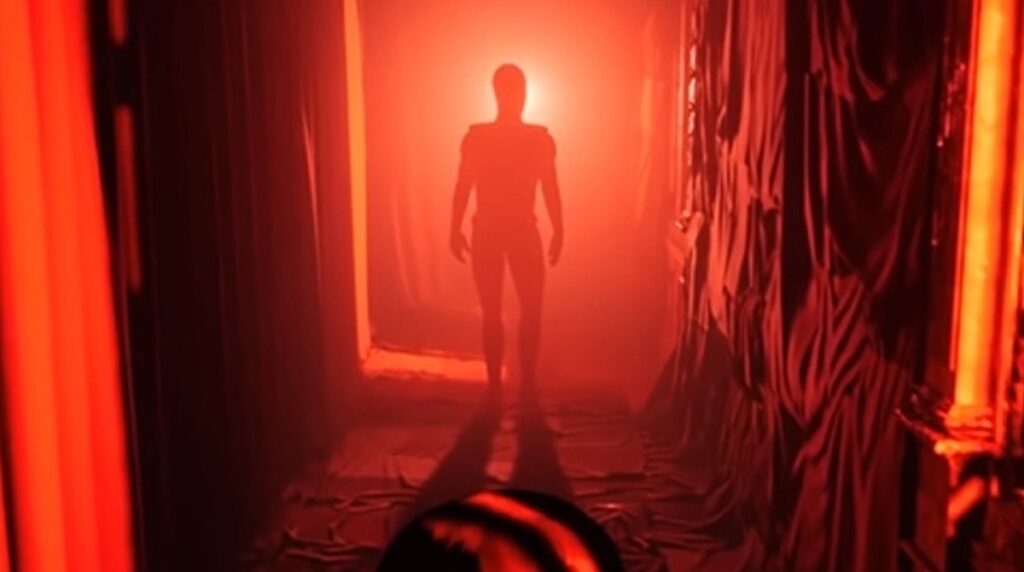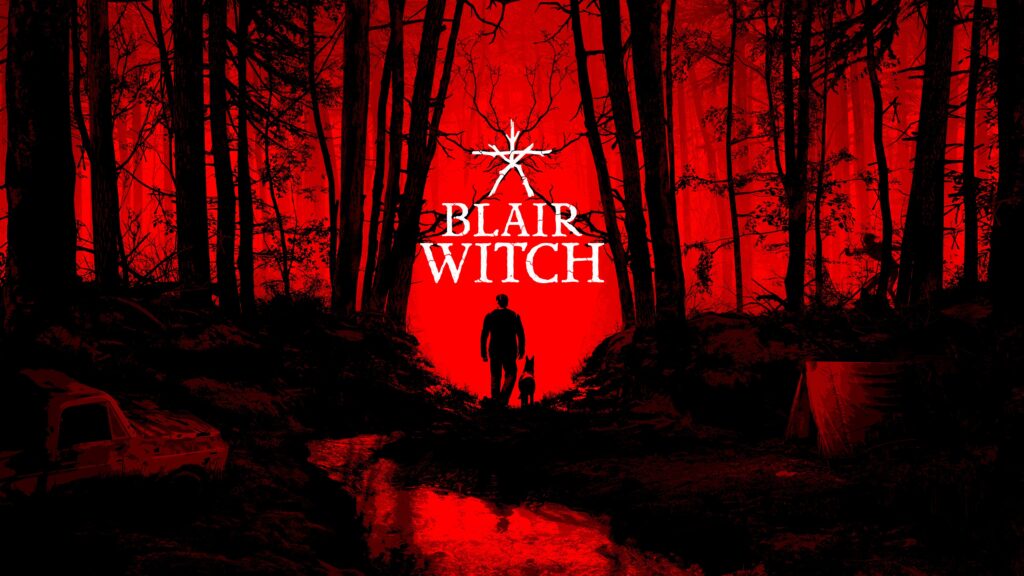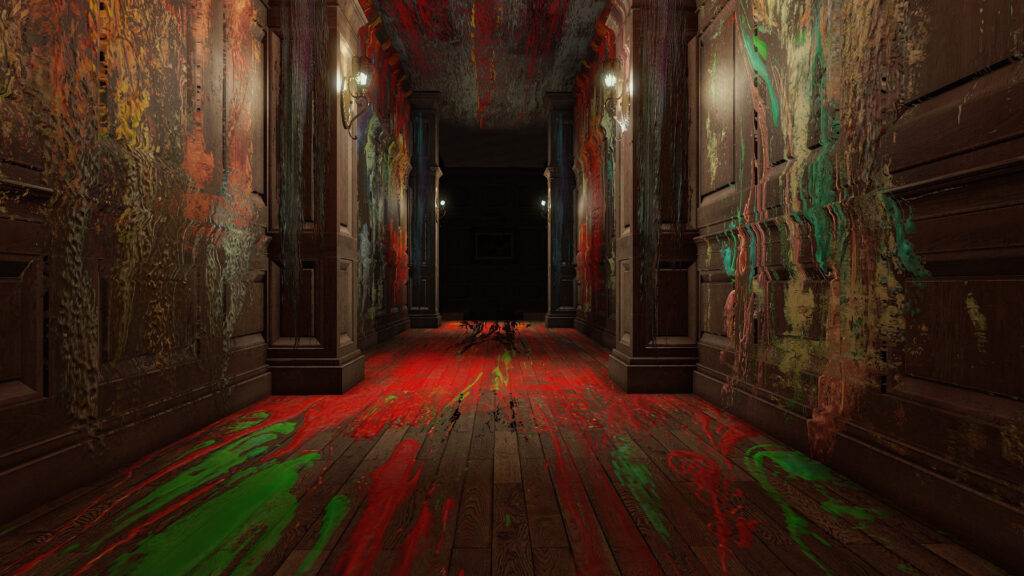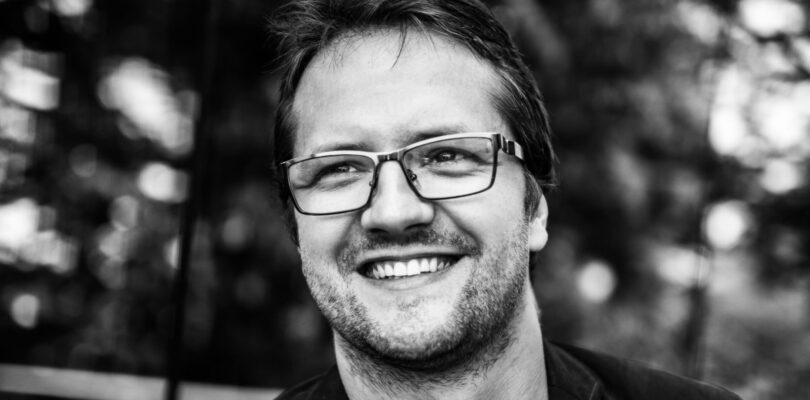This is the English language version of an interview initially conducted in Polish by Piotr Sikorski.
You can find part one of the interview here.
A couple of years ago you’ve composed the fantastic soundtrack for Layers of Fear. Then, you were challenged to create the soundscape to the sequel of this very atmospheric game. You were nominated to the Best Polish Game Original Soundtrack 2019 for your work – congratulations and fingers crossed! I wonder how do you look at both soundtracks after all this time and what challenges did you face when working on them?
Thanks! Glad to hear you liked it. The Layers of Fear 2 OST was also nominated at the Hollywood Music In Media Awards w LA and won the gran prix at Epic Game Music 2019. I’m very pleased by another nomination at Digital Dragons. The first “LoF” was really the beginning of my deeper cooperation with Bloober Team. There wasn’t any bigger budget for the music, so outside of Penelopa Willmann-Szynalik’s phenomenal vocals we recorded everything with digital instruments. That and a lot of piano – I like the instrument a lot and since the protagonist’s wife was a pianist it felt very natural to compose the main theme on it in particular. As an expression of the main character’s nostalgia and longing for her.

The sequel was bigger, with a bigger budget, but most importantly – we could afford an orchestra! But the themes themselves were bigger challenges as well – love and homage to classic films. It’s a very broad topic and this time the natural thing to do was to make strings the main instrument to carry the entire soundtrack. Penelopa, of course, had to be there as well and we even added a child choir to the mix. I am really proud of the results, especially since Bartek (the game’s lead designer) gave me freedom to experiment. It lead to tracks like Stay Awake, which is almost 14 minutes long.
Blair Witch is yet another horror you’ve worked on. The game obviously alludes to the original Blair Witch Project film from 1999. How much were you inspired by Antonio Cora’s soundtrack and how much of the final work is just your imagination? What was the scariest moments you remember from working on the game?
I tried to make something of my own – I’ll admit that I didn’t even listen to the film’s music. Blari Witch is a new look on the curse, a bit more mature and psychological take on the material. The music is very dark, very heavy and often moves on the borders of audibility and a player’s perception. There’ almost no melody in it. The protagonist is struggling with PTSD from the war and other, personal probles, finding his escape in the search for a lost boy.

These themes made a big impact on the music, but it wasn’t easy to work on it, even though I like these vibes. I really like – and I’m really scared by – the scene in which the protagonist reaches a white tree in the forest where he was supposed to meet with the sheriff. When he calls him, it turns out they’re both there, but can’t see each other. That’s when the player connects the dots that Ellis is no longer in the real world and to the very end it won’t be clear what’s a product of his imagination. Beautiful!
A lot of us has our idols, people we emulate. Mine was the sadly departed film composer Jóhann Jóhannsson. You often allude to Eastern music and creators. One of them is Akira Yamaoka, the composer behind the iconic Silent Hill. I had a chance to meet my idol, you not only shaked hands with Yamaoka, but you now work together. How did it happen that the two of you began composing the score for The Medium, how does it look like now? It must be an unforgettable experience.
I had the pleasure of meeting Akira in Kraków and then to visit him in Tokyo, before the work began. Akira had his first experience with The Medium’s demo during Tokyo Game Show. Our lead game designer Wojtek Piejko was there too, alongside producer Konrad Rekiec. They’ve met with Akira through a mutual friend, Rafał Gąsieniecki, who is currently working in Tokyo (and he’s an amazing concept artist, he worked with Grasshopper Manufacture among others). Akira was very enthusiastic about the presentation and he agreed pretty much instantly. Currently we’re mainly exchanging ideas through e-mail, sometimes through calls, we send each other the things we’re working on. I send ideas for implementation, record gameplay videos, send my own music. The cooperation is organic, we’re trying to figure out an intriguing music style. It’s gonna be something new for sure.
What is your responsibility in this project and what’s Yamaoka’s?
I’m behind The Medium’s audio and music direction. It’s also because due to distance and time zone differences it’s not easy to handle rapid changes and new ideas in a project. It’s a challenging game, one which requires constant cooperation between the audio team and the rest of the studio. I’m also responsible for the music from the real world. Akira’s behind the spiritual realm.
Have you learned anything from your idol?
Akira is a very humble man. He’s chill and talkative, which isn’t common among the Japanese. I’ve always liked how he can utilize the sounds from items and things around us, not necessarily instruments. The techniques for crafting rhythms from the sounds that surround us is something that definitely fascinates me.
Which one of your projects is the closest to your heart and why?
A tough one! I like working with others, so it would be hard not to reminisce about Rutger Hauer and us listening Observer’s music together. There’s also Emi Evans, whom I met in Tokyo – together we’ve made a song for the game My Brother Rabbit. But I think the closest one is Layers of Fear.

That project, musically, became very popular online. It gave me a lot of fans and a sort of following – thanks to it I have people who await my new projects. It’s very nice and very motivational.
For many years now you’ve been a very active, prolific composer. We both know that a creator’s biggest nightmare is a lack of inspiration, ideas and motivation. How do yu handle these problems? Or maybe you don’t, because you don’t encounter them?
I do and often so! It’s just when a knife to your throat is the motivation it’s kind of hard not to finish something! I’m half-joking. But a lack of inspiration is something that happens and I can’t escape it. When it happens, I usually need something to regenerate. Maybe a trip, taking a break with a book, film or a game, or even listening to something inspiring. I think that you have to always keep your life in mind, despite all the daily responsibilities. It lets you strike a balance between your work life and actual life – and also to minimize any downtime in creation.
I’m very interested in learning about your creative process, especially when it comes to keeping up said balance. What do you start with, what’s the biggest challenge and what’s the most natural, easy thing to do?
I’m inspired by scenes, colors, then the script and story. Generally – the project I work on has to inspire me. This allows for the most creative, fertile work. I often start with simple motifs, something that fits the world and begins to describe it. There’s looking for instruments, or something specific, that will carry the main theme (like the piano in Layers of Fear or Observer’s white singing). Building up the project, creating the base I’ll be drawing from. Consistent contact with the team, playing the game itself and finally – creating music for specific scenes. And round it goes til the end. I like to start with a project early, so I can feel its atmosphere the best I can.
Perhaps this interview will reach people who’d like to write game music in the future. Bet they’ll want to learn your opinion about tackling this career. How do you look at your decision after so much time – is it worth it to dive into this line of work, or do the cons outweigh the pros?
It’s hard for me to imagine myself differently. I just knew quite early that I want to do this, first as a hobby, then professionally. But there are pros and cons. It’s easy to assume that composing music is like a dream, but it’s hard work that relies on learning how to be with others, how to sense the needs and style, but most importantly – how to process criticism. Because there’s a lot of it, starting off it’s very rare to make a project would third party interference. Often you’ll think that obviously you know how this should be done. But you’re wrong – communication is the basics of basics. It’s also not a job for someone seeking stability. Sometimes you just have to move forward, unbent, and refuse to give up.
To finish up, our classic question – how do you see a Settled Down Gamer? Could you call yourself one? What games do you play?
The Settled Down Gamer reminds me of someone who has their priorities straight and can find time for relax and games outside of their responsibilities. So I think I can call myself one! I mean, I even planted a tree in my yard recently. And I do play games, definitely – I’m a fan and I like to play, and besides it’s hard not to play and then work with games. It’s good to be in the know and feel a work’s nuances. Recently, I’ve finished The Last of Us Part II (fantastic, definitely one of the best games I’ve ever played), I’m playing Ghost of Tsushima and… I’m a massive Persona fan. Persona 4 Golden is my favorite, but I think 5 is also brilliant.
Arek, thank you very much for spending a few moments here with us. Our entire team wishes you luck in all current and future projects!


